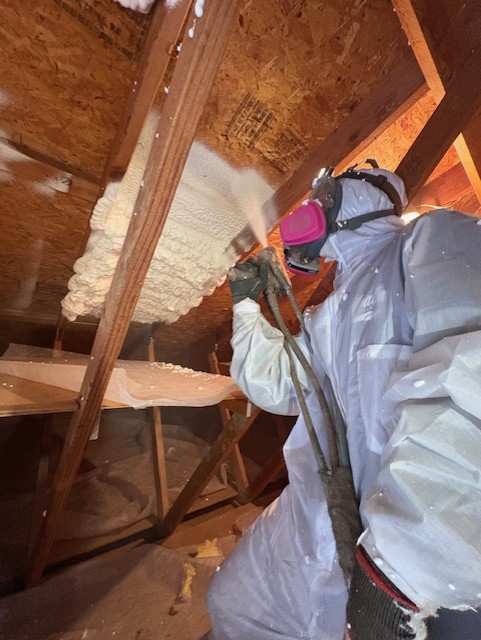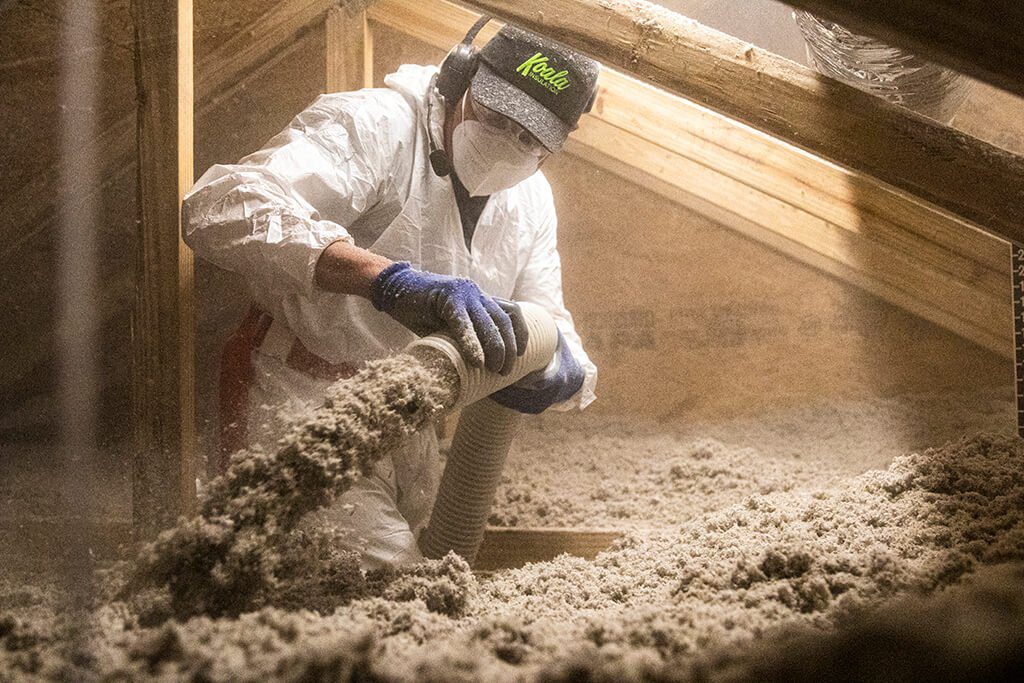Most homes in the United States are constructed based on building code requirements established by the International Residential Code (IRC). The requirements serve as a foundation for many state and municipal insulation requirements, all of which prioritize safety and energy efficiency.
If you’re planning to remodel your home, replace existing insulation, or confirm specific areas of your home meet requirements, this guide will help.
Why Is Insulation Required by Code?
Insulation is a vital part of creating a safe, healthy, and energy-efficient home. International, federal, and state residential building codes provide minimum requirements for insulation and nearly every other component of modern dwellings, including plumbing, electrical, and structural integrity.
Codes for insulation vary more than other systems to account for local climate and specific community priorities.
The Foundation of Home Building Codes
The International Code Council (ICC) publishes the International Residential Code (IRC) every three years. Every edition accounts for emerging technology and material advancements. Federal and state governments adopt and adjust requirements from the IRC on a similar cadence. Contractors and property developers must typically perform work according to the most recent IRC guidelines by publication date.
Who Enforces Home Building Code Insulation Requirements?
Residential building codes are generally enforced by the county or city building department. This local approach to building code enforcement streamlines the process and benefits from local expertise and historical understanding of local regulations.
Local building departments ensure projects meet IRC or local requirements at two key touchpoints:
- Permitting: Most municipalities require the homeowner or contractor to apply for a permit. The permit application includes in-depth plans of the project for the department to review.
- Inspection: Once the permit application is approved, the department sends inspectors to the project site at various stages, such as foundation laying, framing, or final inspection.
Do You Need a Permit for Insulation?
It depends. Some local ordinances require a permit for removing and replacing insulation or adding insulation to an existing home, especially if multiple areas of the structure are involved. If you are doing additional work, such as extensively remodeling or making changes to your electrical or plumbing system, you’ll likely need a permit.
The best way to determine if you need a permit for your project is to check with your local building department or ask your local Koala Insulation for assistance.
How Insulation Requirements Vary by State
As you’d probably expect, homeowners in Florida have very different insulation needs than those in Minnesota. Your location significantly impacts the type of insulation you need, its R-value, and where it should be installed. Therefore, states have different requirements based on these areas of concern.
R-Value: The Department of Energy has a map of minimum R-values by state based on each zone’s climate. Homes in colder climates require higher R-values than those in warmer climates. Depending on the type of insulation used, additional layers or different materials may be necessary to achieve the mandatory R-value.
Location in the Home or Building: In addition to varying R-values by geographical zone, each state has different requirements for areas of the home, including attics, exterior walls, floors, basements, and crawl spaces. The table below explains these nuances.
Fire Prevention and Safety: Some states also have different safety requirements for insulation, such as the use of thermal or ignition barriers when using spray foam insulation or keeping attic vents clear with loose fill insulation materials.
Attic, Basement and Exterior Wall Insulation Codes
These three areas of a home are the most important for energy efficiency, and the regional differences in insulation code shed light on just how much location impacts insulation needs.
| Climate | Basement Insulation Code | Exterior Wall Insulation Code | Attic Insulation Code |
| Zone 1-2 (hot and humid) |
Not required |
R-13 |
R-38 |
| Zone 3 (temperate) |
R-13 |
R-20 |
R-38 |
| Zone 4-5 (cold) |
R-15 to R-19 |
R-20 |
R-49 |
| Zone 6-8 (very cold) |
R-15 to R19 |
R-20 |
R-60 |
For specific details on insulation codes for exterior walls, basements, and other areas of your home, check with your local building department.
Trust an Insulation Expert to Keep Your Project Compliant
Always count on an experienced insulation contractor to ensure your upgrade, remodel, or new construction project is up to code. Koala Insulation helps homeowners and developers create comfortable, energy-efficient spaces with our range of services and top-notch products. Learn more about insulation codes in your area by contacting your local insulation team today.
Related
Articles
The Best Insulation to Keep Heat Out in Hot Climates
Addressing Spray Foam Insulation Safety
CELLULOSE 101: THE BENEFITS AND INSTALLATION TIPS
Find Your Location


Get a quote





